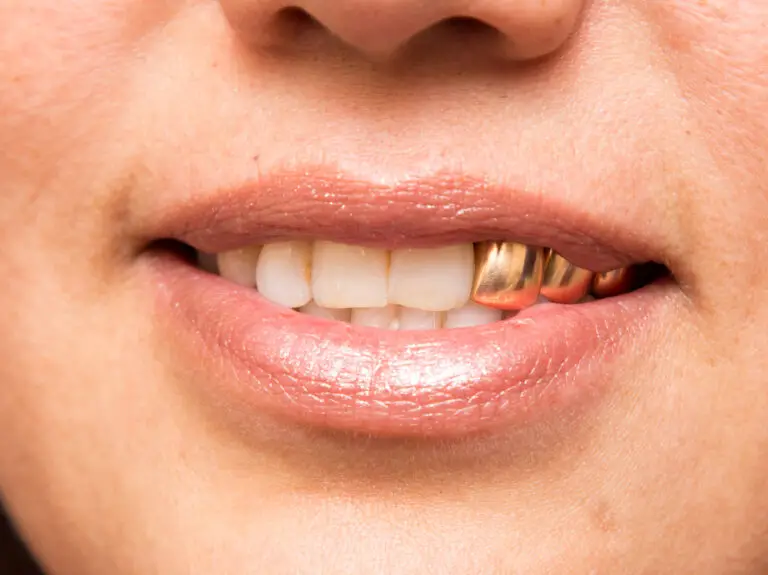Many people experience tooth sensitivity after whitening treatments. This common side effect is usually temporary and can be managed with proper oral care. Sensitive teeth may hurt after whitening due to irritation of the dentin layer underneath the enamel. Understanding the causes and treatments for post-whitening tooth sensitivity can help you get the bright smile you want with less discomfort.
What causes tooth sensitivity after whitening?

Whitening products contain peroxide-based active ingredients that penetrate the enamel and reach the dentin layer. The dentin has thousands of microscopic tubules leading to the nerve of the tooth, so irritation of these tubules is what causes sensitivity.
Here are some key reasons why whitening can irritate the dentin and make teeth sensitive:
- Removal of surface stains – Whitening products work by removing deep and surface stains from the enamel. This abrasive process can also remove some of the protective enamel layer and expose more of the sensitive dentin underneath.
- Peroxide penetration – Common bleaching agents like hydrogen peroxide and carbamide peroxide penetrate below the enamel into the dentin. This chemical irritation of the dentin fluid inside the tubules triggers nerve sensitivity.
- Desiccation – Whitening gels can lead to dehydration and drying out of the teeth, especially trays that are worn for prolonged periods. Lack of moisture allows for deeper peroxide penetration that sensitizes the dentin.
- Pre-existing sensitivity – Teeth that already have some exposed dentin or existing sensitivity are more likely to develop post-whitening pain. The whitening enhances the sensitivity in teeth that are already prone to it.
When does tooth sensitivity peak after whitening?
For in-office whitening procedures, sensitivity tends to peak within a few hours after the appointment as the peroxide effects sink in. For at-home whitening with trays loaded with gel, sensitivity typically peaks after a couple of days of continued use. Pain levels tend to gradually improve within a week after ending the whitening treatment as the nerves become less irritated.
How long does post-whitening tooth sensitivity last?
The duration of sensitivity after whitening varies by each person and the type of whitening treatment used:
- For in-office power whitening, sensitivity can last for up to 4 days.
- With at-home whitening trays, sensitivity may persist for 5-10 days as treatment is used continuously over a 2-week period.
- For mild over-the-counter whitening products, sensitivity generally resolves within 1-2 days.
With proper oral care after whitening, most individuals find their tooth sensitivity resolves completely within 1-2 weeks. However, it can take up to a month for some. Extreme tooth sensitivity lasting more than 1 month after whitening is uncommon and indicates a need to see a dentist.
Tips to prevent tooth sensitivity after whitening

You can take proactive steps before and after whitening to help avoid or minimize sensitivity:
Before whitening:
- Get any cavities or leaky fillings repaired, which reduce dentin irritation.
- Use a desensitizing toothpaste for 2-4 weeks to block pain transmission preemptively.
- Talk to your dentist about using a desensitizing gel or varnish before the whitening appointment.
During whitening treatment:
- Don’t overdo it – Follow product instructions carefully to avoid over-bleaching the teeth.
- Take breaks if having trays made – Give your teeth a break halfway through the treatment timeline.
- Keep hydrated – Drink lots of water to prevent desiccation and dryness in the mouth.
After whitening:
- Use desensitizing toothpaste daily after the procedure.
- Apply desensitizing gels or fluoride treatments according to dentist’s recommendations.
- Avoid very hot or cold foods and beverages that trigger pain.
- Take OTC pain relievers such as ibuprofen or acetaminophen as needed for discomfort.
When to call the dentist about tooth sensitivity:
- Pain that lasts more than 1-2 weeks without relief
- Bleeding from the gums
- Ulcers or sores in the mouth
- Cracks or chips in the teeth
- Severe throbbing pain that disrupts sleep
Professional treatments to relieve post-whitening sensitivity

If you experience prolonged sensitivity after whitening, visiting a dentist can provide fast relief. They may recommend these office treatments:
Fluoride varnish application
Fluoride varnish seals off the dentinal tubules to prevent sensitivity. Multiple applications may be needed for lasting results.
Desensitizing resin sealants
Sealants are painted onto sensitive areas to seal dentin and prevent irritants contacting nerves. Effects can last up to 3 years.
Potassium nitrate treatment
Specialized gels containing potassium nitrate lower nerve activity to block sensitivity. Multiple applications may be required.
Root canal procedure
If sensitivity is severe and localized to one or two teeth, a root canal procedure may be done to remove the inflamed nerve.
Home remedies to soothe sensitive teeth after whitening
Here are some natural ways to manage post-whitening discomfort from home:
- Cool compress – Apply an ice pack wrapped in cloth to painful teeth for 10-minute intervals to reduce sensitivity.
- Saltwater rinse – Swish with a glass of warm water mixed with 1 teaspoon of salt to draw out inflammation.
- Cool foods – Stick to non-thermal foods like smoothies, yogurt, and soft fruits. Avoid hot and cold foods.
- Desensitizing toothpaste – Brush 2-3 times a day with toothpaste containing potassium nitrate.
- Clove oil – Apply a small amount of clove oil to a cotton ball and gently rub on sensitive teeth for numbing effects.
- Wax – Use orthodontic wax to cover irritated areas that trigger pain when exposed.
If natural remedies don’t relieve the discomfort within 1-2 weeks, schedule a dentist visit for professional treatment. Avoid placingwhitening trays until sensitivity resolves.
When to avoid teeth whitening
While whitening side effects are usually temporary, some people may be better candidates than others. You may want to avoid or postpone whitening if you have:
- Severe untreated tooth decay or gum disease
- Very worn enamel from grinding or acid erosion
- Extensive dental work like veneers, crowns or bridges
- Recent extractions or oral surgery sites
- Allergies to common bleaching agents
Always consult your dentist first about whitening if you have any of these issues. They can help determine if alternatives like internal bleaching or other cosmetic treatments are better options for you.
Can tooth sensitivity after whitening be prevented?

It’s difficult to prevent post-whitening sensitivity completely since it’s a common transient side effect. However, you can take key steps to help minimize the chances of sensitivity occurring or reduce the severity:
- Get any necessary dental work done first before whitening
- Have custom trays made to ensure proper gel contact with teeth only
- Follow usage directions carefully when self-administering whitening gels
- Reduce application time or frequency if irritation occurs
- Pre-treat with desensitizing toothpaste or professional fluoride
- Stay hydrated and maintain good oral hygiene habits
- Avoid smoking and dietary acids during treatment
- Apply desensitizing products after whitening as needed
- Take over-the-counter pain medication as needed for relief
While annoying, post-whitening tooth sensitivity is a minor inconvenience for the hours to days of beautiful bright smile you can achieve. Paying attention to oral health, following usage guidelines, and pre-treating with desensitizing products can all help you whiten your teeth with less sensitivity.
Frequently Asked Questions about post-whitening tooth sensitivity
1. Is tooth sensitivity after whitening normal?
Yes, it’s very common to experience mild to moderate tooth sensitivity for a few days after any type of teeth whitening treatment. This is a normal temporary side effect caused by irritation of the inner dentin layer.
2. How long does tooth sensitivity last after professional in-office whitening?
For in-office whitening done under supervision at the dentist’s office, sensitivity tends to peak within 3-4 days but gradually improve over 7-10 days post-treatment.
3. Should I stop whitening if it makes my teeth sensitive?
You may want to temporarily stop home whitening treatments for a few days if the sensitivity is severe. But you can continue as long as you follow directions and take OTC pain relievers to manage discomfort.
4. What is the best toothpaste for sensitive teeth after whitening?
Look for toothpaste containing potassium nitrate or strontium chloride which help block pain transmission from the nerves. Sensodyne and Colgate Sensitive Pro-Relief are good options.
5. Can teeth be too sensitive for whitening treatments?
If you already have severe tooth sensitivity, extensive dental work, or gum recession, you may be at higher risk of side effects. Discuss alternate whitening plans with your dentist.
In summary, tooth sensitivity is a very common but temporary side effect after whitening treatments. Proper oral care before, during, and after whitening can reduce discomfort. Most sensitivity fades within 1-2 weeks. Consult your dentist right away if you experience severe or prolonged pain after whitening. With some caution, you can achieve that brighter smile you want.







